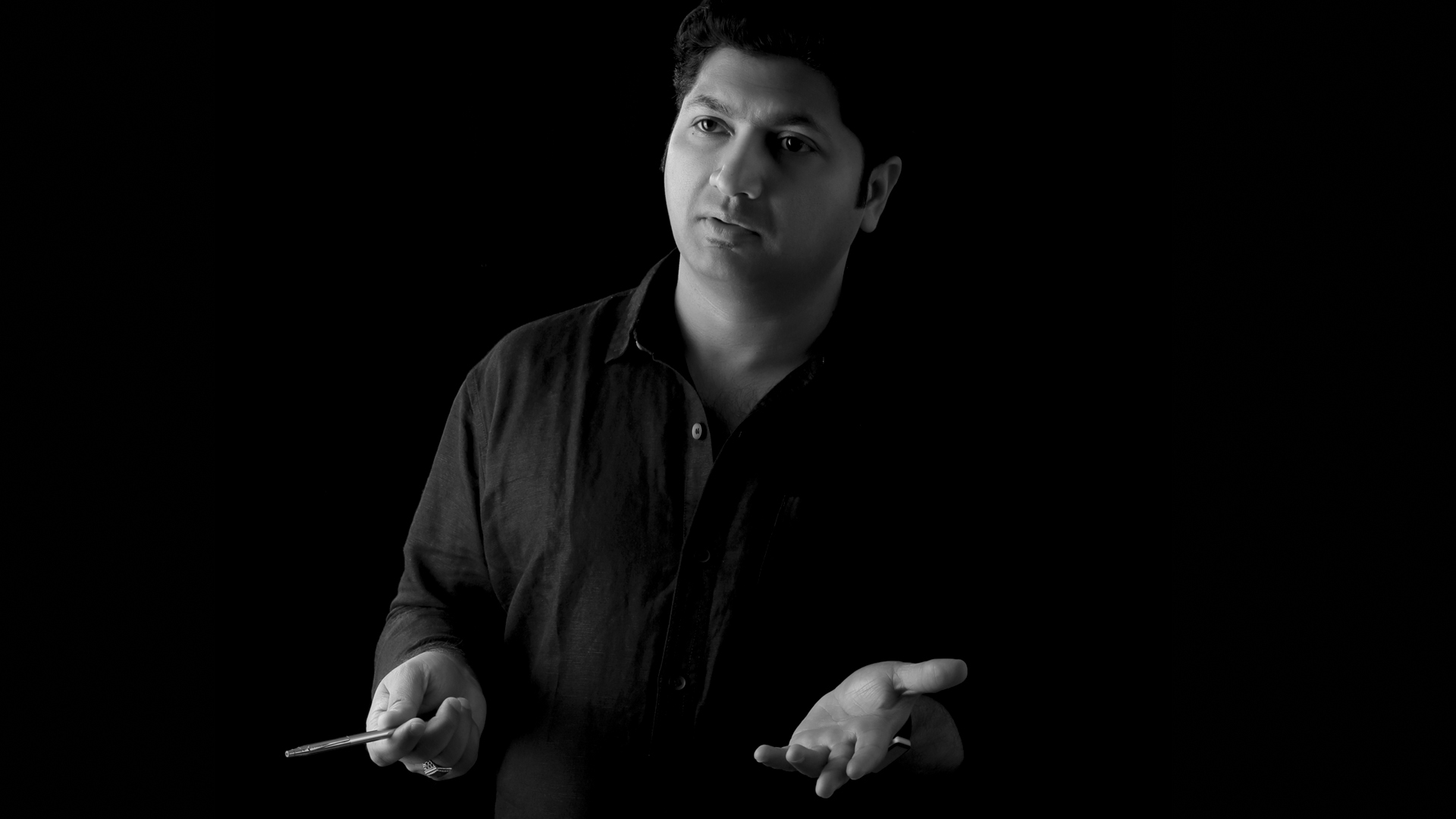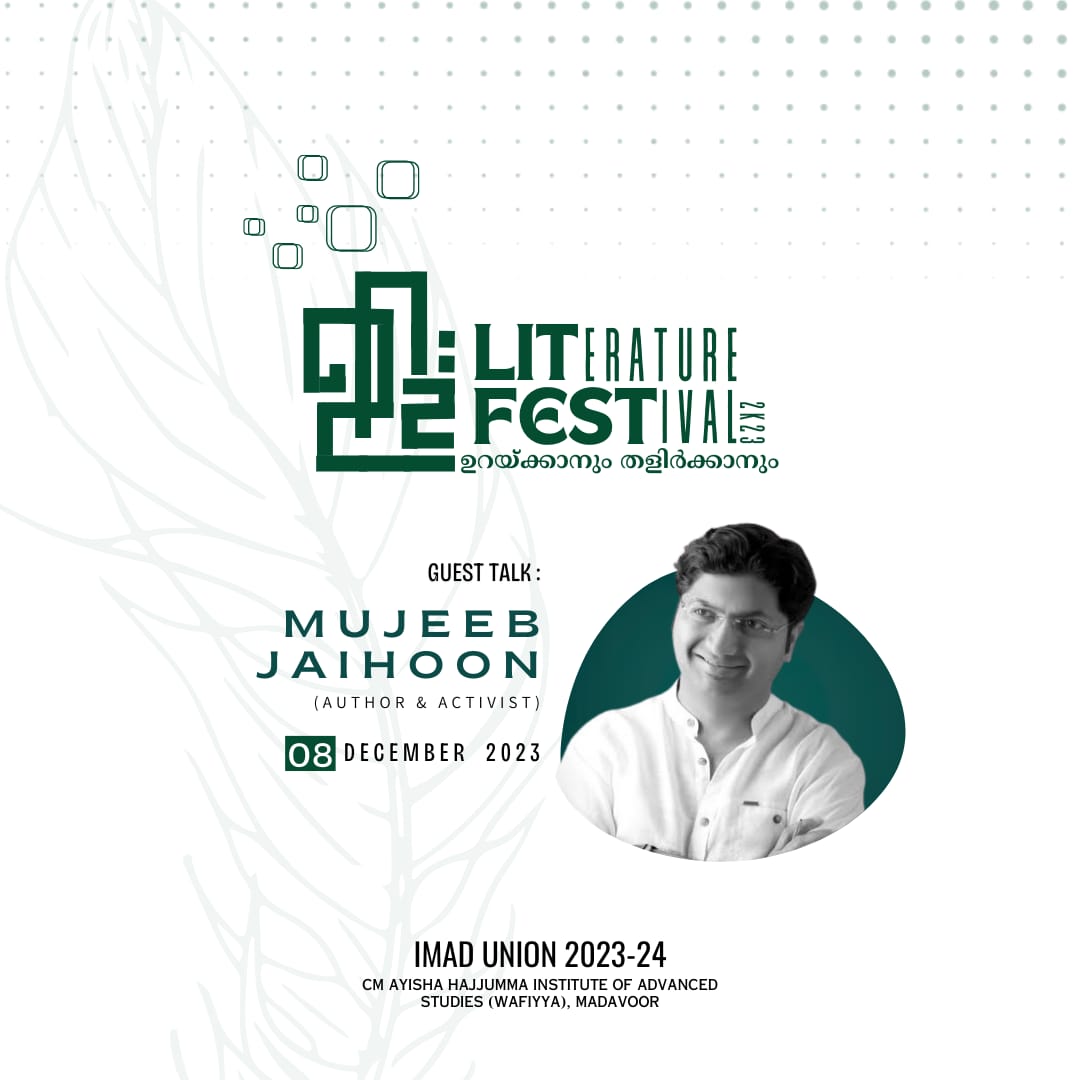One should express remorse for the unintentional waste of a tree’s life, which was sacrificed due to the error, asserts Mujeeb Jaihoon
This marks my third address at a Wafiyya-stream campus in the past few years. Interestingly, the initial two occurrences took place during the challenging period of the COVID-19 breakdown. The integrated educational streams of ‘Wafi’ and ‘Waffiya’ remained relatively obscure until the recent organizational clash with the conservative clergy in Kerala brought them to broader attention.
Islam is not just a religion or an ideology; it encompasses a comprehensive lifestyle, art, and is, in essence, the sum of all these elements. However, at its core, Islam defines the relationship between the Creation and the Creator, a connection rooted in beauty. While we could communicate with our Creator using everyday language, the creed of Islam emphasizes expressing ourselves through words and actions that are beautiful.
A simple yet significant example can be found in our morning routine. As we wake up, one of our first acts is to diligently brush our teeth, a practice carrying both cultural and hygienic significance. This reflects the Islamic ethos of incorporating beauty and purpose into even the most mundane aspects of daily life.
Islam has made noteworthy contributions to the realm of physical hygiene. Take, for instance, oral hygiene—a practice well-established by the Prophet. An average practicing believer is often observed brushing their teeth at least five times a day. Additionally, ablution, a fundamental ritual, ensures that our hands and feet are cleansed of germs and harmful elements. Thus, throughout a single day, individuals not only achieve physical cleanliness but also engage in spiritual purification through these routine practices. This holds true for the daily habits of ordinary Muslims, not to mention the elevated states of cleanliness maintained by saintly men and women.
In our plea to the Creator during the early dawn prayer, reciting “Allahuma hidinee fee man hadaith” holds profound significance as a precious dua aimed at safeguarding the most invaluable aspect of our lives: Our faith. While many things in life may be subject to loss, the one thing we cannot afford to part with is our Iman or Faith. It remains the cornerstone of our existence.
Beyond faith, our most precious blessing is undoubtedly health. “Health is wealth” is not a mere metaphor; it holds profound truth. There exist affluent individuals grappling with incurable illnesses, willing to relinquish their entire wealth for a chance at freedom from their maladies.
Our Prophet not only prioritized our faith but also our well-being. The care he demonstrated for our health is a testament to the unparalleled concern of our Beloved Leader, as no one can look after us with the same compassion and devotion.
In life, there are two critical moments when we will dwell only on the critical: when faced with mortal danger and when lying on our deathbed. Remarkably, the blessed Companions of the Prophet exemplified the significance of poetry during these circumstances. It underscores the esteemed place of poetry in our tradition. Even luminaries of our legacy, such as Abu Bakr (May Allah be pleased with him), would recite verses while on their deathbed, reflecting the importance accorded to poetic expression in our culture.
We ought to inform non-Muslims with the significance of beauty in Islam, including the aesthetic allure found in the verses of the Holy Quran, the gracefulness of our prayers and hymns, and the elegance inherent in our rituals such as Wodhu and other spiritual and ceremonial practices.
Humanity achieves its perfection through Islam, and within this beautiful tradition lies the imperative of preserving nature. You may be familiar with Shaykh Mohiyuddin Athipatta, a saintly soul who fervently supported the Wafiyya stream. Let me narrate a poignant story about him that deeply resonated with me. On a certain occasion, the Shaykh summoned a laborer to remove unnecessary trees from his garden. Upon felling a tree, the laborer casually tossed its branch aside. Observing this, the Shaykh counseled him, saying, “That tree has feelings too; treat it with respect.”
Each tree we see is a living thing made by Allah. Hence, we must respect them like we respect each other.
In the future, when you become part of a workplace and inadvertently print something in error, I believe you should express remorse by saying ‘Astaghfirullah.’ This is to acknowledge the unintentional waste of a tree’s life, which was sacrificed due to the error.
Highlights from Mujeeb Jaihoon online talk at the Literature Fest, conducted by the CM Ayisha Hajjumma Institute of Advanced Studies (Wafiyya), Madavoor – Dec 08 2023



